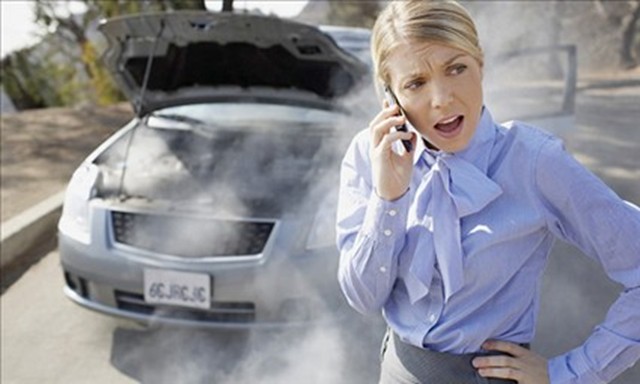Warm Weather is Coming! Do you know what to do if your car overheats?
What to do when your car overheats
 As the temperature rises outside it’s common to see car engines heating up as well. While consistent abnormal rises in your engine’s temperature warrant a trip to the auto repair shops, there are some things you can do while on the road to make sure the temperatures don’t lead to long-lasting trouble.
As the temperature rises outside it’s common to see car engines heating up as well. While consistent abnormal rises in your engine’s temperature warrant a trip to the auto repair shops, there are some things you can do while on the road to make sure the temperatures don’t lead to long-lasting trouble.
Here’s are some easy steps and tips to help you know what to do if your vehicle overheats:
• Carry an extra bottle of coolant (a.k.a. antifreeze) in your car as well as a large jug of water. Engines often overheat due to a lack of coolant. Double check you have the right type of coolant for your vehicle, (some do require special brands.)
• If you see your temperature gauge creeping up, or you get an engine overheating light glowing, immediately turn off your vehicle’s air conditioning. The AC system puts a lot of strain on your vehicle’s engine and can make added heat.
• If the problem persists, crank your heater up to full blast. It could make the next few miles a pretty brutal experience, but the transfer of heat away from the engine might just save its life.
• Should the preceding steps fail, pull over as soon as you can and turn off the engine. If you can pop the hood from the driver’s seat, do so — but don’t risk opening it by hand until the engine has cooled, especially if you see steam wafting off the engine. It typically takes nearly 30 minutes for an engine to cool. Once the engine has cooled, check the coolant tank. It’s usually a translucent plastic tank near the radiator. If the coolant tank is empty, you may have sprung a leak. Take a quick look under the car. If you notice a drip or puddle, chances are the coolant tank is leaking and it’s time to call for professional help.
• If you do have a leak, carefully open the radiator cap. Again, only do this after the engine has cooled. Place a cloth over the radiator cap to protect your hand, and tilt the cap away from you as it opens. Refill the cooled radiator with your spare coolant or water. Do not pour cold water into a still-hot radiator — it could cause the engine block to crack due to the sudden change in temperature. If you are able to get coolant in your vehicle and the engine cooled down, immediately get it to an automotive shop for repair as soon as possible. Engine overheating can cause major damage to your vehicle’s engine.
• If the coolant tank is full, the problem may be electrical or mechanical in nature, in which case a tow to the nearest repair shop is definitely in order. A leaking hose, worn or broken fan belt, bad water pump, or malfunctioning thermostat may be the culprit.
If you find that your car often gets a little hot under the hood, it’s probably an indication of a larger problem, so consult your repair shop or trusted auto expert. Burlington Automotive is here to help with all of your vehicle repair and maintenance needs. Also, remember we do offer 24-hr towing services to help you out when those unexpected vehicle emergencies arise.





No Comments
Sorry, the comment form is closed at this time.